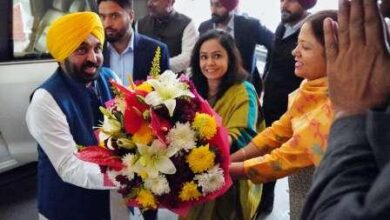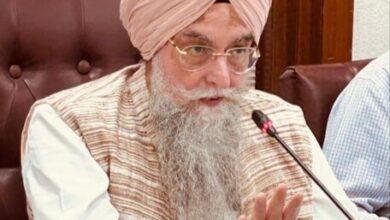PUNJAB CABINET APPROVES RS. 62.46 CR WAIVER FOR PSCFC AND BACKFINCO LOANEES

PUNJAB CABINET APPROVES RS. 62.46 CR WAIVER FOR PSCFC AND BACKFINCO LOANEES
14853 SC, HANDICAPPED BC, EWS & MINORITY CATEGORY LOANEES TO BENEFIT
Chandigarh, August 26: The Punjab Cabinet on Thursday approved waiver of loans,
upto Rs.50,000 each, of the loaness of the Punjab Scheduled Castes Land Development and Finance Corporation (PSCFC) and Punjab Backward Classes Land Development and Finance Corporation (BACKFINCO).
The pro-poor initiative will benefit loanees belonging to Scheduled Castes, Handicapped Backward Classes, Economically Weaker Sections and Minorities, an official spokesperson said after the cabinet meeting chaired by Chief Minister Captain Amarinder Singh.
During the meeting, Cabinet Minister Charanjit Singh Channi appreciated the decision, and also the recent loan waiver of landless farmers and farm labourers.
The total amount to be waived stands at Rs. 62.46 crore, applicable to loans disbursed up to March 31, 2021, with waiver amount to be calculated on June 30, 2021. This translates into Rs 41.48 crore of PSCFC loans and Rs 20.98 crore of BACKFINCO loans.
A spokesperson of the Chief Minister’s Office said that under the scheme, a total of 14853 loanees (10151 of PSCFC and 4702 of the BACKFINCO) will benefit.
The waived off amount would be borne by the State Government and released to both the corporations as Grant-in-Aid.
Notably, the PSCFC advances loans to poor Scheduled Castes and handicapped persons for self-employment at nominal rate of interest, and BACKFINCO advances loans to poor persons belonging to Backward Classes, Minorities and Economically Weaker Sections of the society for self-employment at nominal rates of interest. The recovery rate of loans advanced by the PSCFC is about 77 percent, while the recovery of BACKFINCO is about 65 percent. Despite the best possible efforts, the recovery rate could not be improved further due to various reasons, such as failure of business, death of the loanee, chronic illness of the loanee or any other family member, as well as natural calamities. Besides, the spread of Covid-19 also affected the incomes of the loanees.




